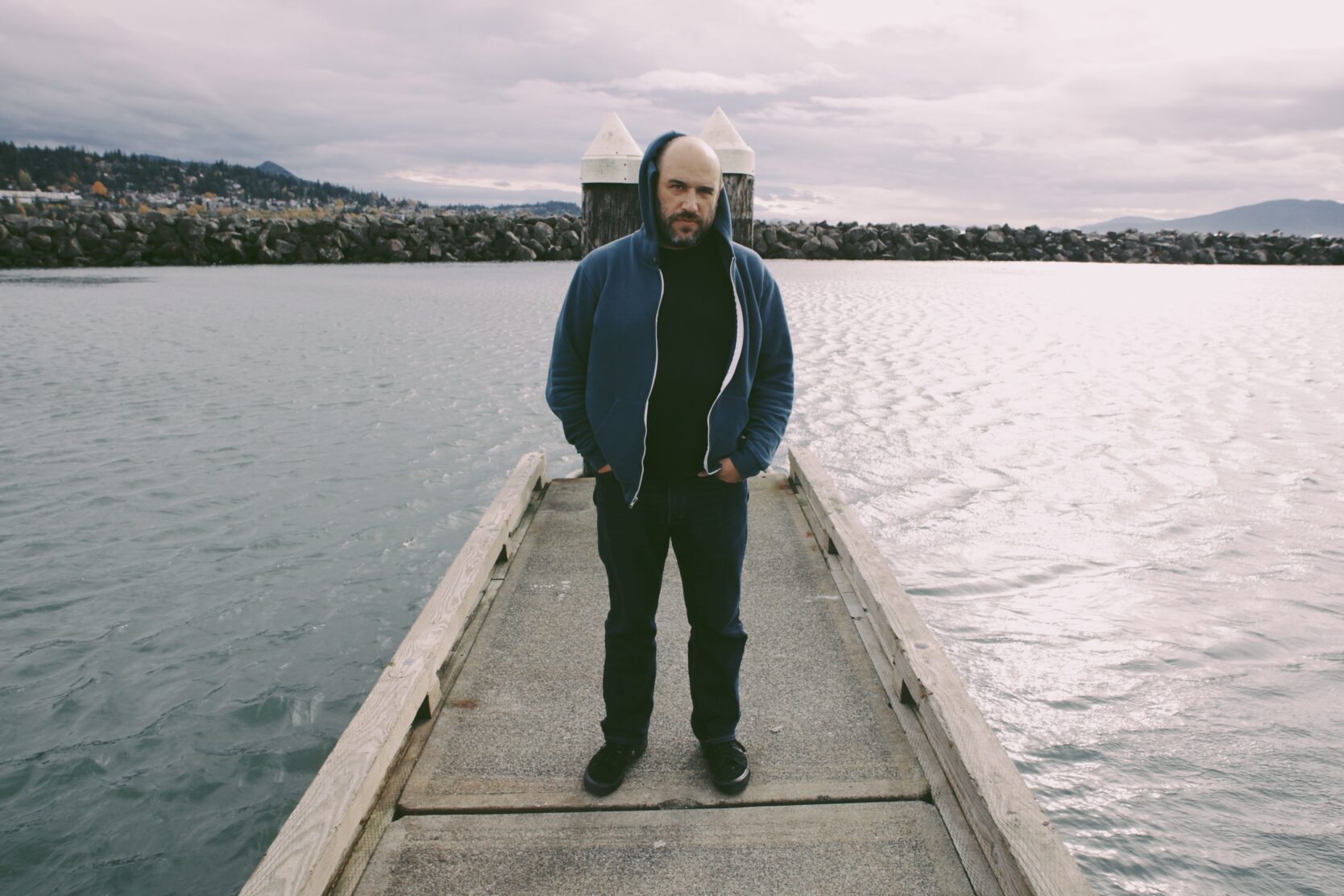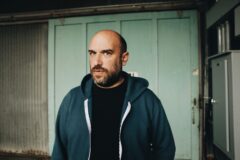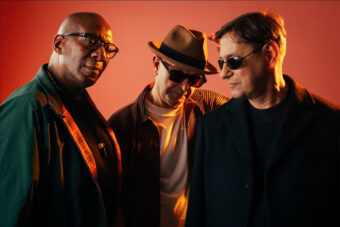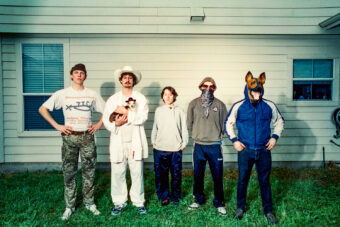If you’ve been a fan of David Bazan’s music for the past few decades, you know that releasing a surprise album is a sign of personal growth and acceptance. The veteran indie rocker has released numerous albums — both under the Pedro the Lion moniker and as a solo artist — that have dealt with his messy break with Christianity and the psychological damage the Church caused him.
Keeping close tabs on his emotional state both with himself and his fans is something that he has always valued. But when it came time to release his new Pedro the Lion album, Havasu (which he spent the past year quietly recording), the idea of presenting this batch of songs all at once without advance singles seemed like the right thing to do.
Since reviving Pedro the Lion after nearly 15 years, Havasu marks his second entry in a proposed five-album project that examines each of his childhood hometowns. Understandably, the thought of doing the typical promotion cycle to air out his wounds seemed less than ideal.
“That part of the process of teasing the record and putting singles out and having people respond can be great,” Bazan tells SPIN over the phone. “But with this particular record, I do think it’s served a lot more by people just getting to hit play and get immersed and hear the songs in order.”
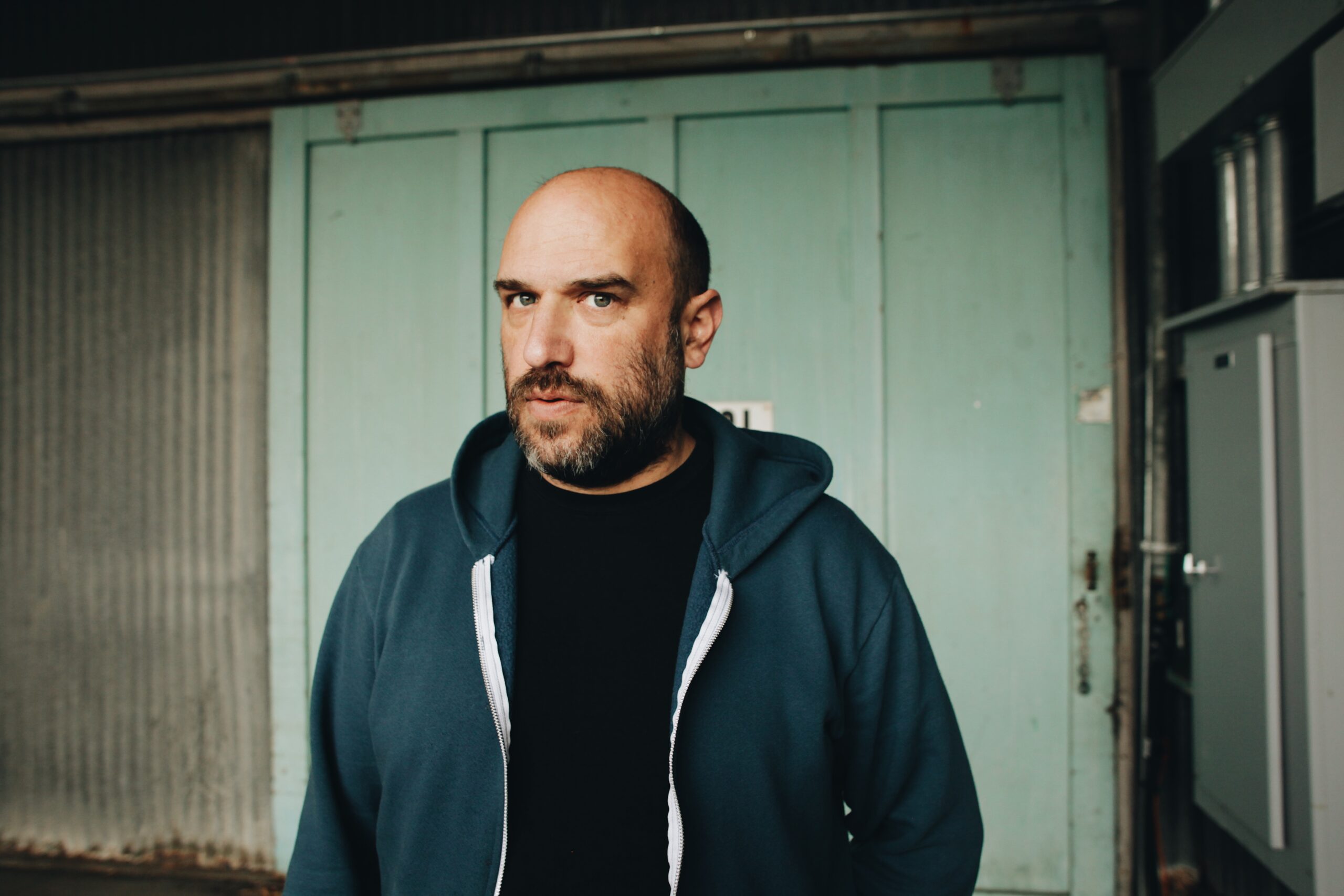
Listening to the album, it’s easy to understand why.
Narratively, the album picks up right where 2019’s Phoenix left off. A young Bazan and his family packed up their belongings and found a new home nearly 200 miles away in the town of Lake Havasu. A God-fearing 12-year-old Christian, Bazan grappled with complicated feelings of faith and understanding of his true self. Having to be the “new kid” in school didn’t make things any easier. As he puts it on Havasu’s “Too Much,” sometimes there is “too much desperation for a casual conversation.” In many ways, the performative defense mechanism of being a “people pleaser” around new faces has followed him throughout his entire life.
But maintaining a family life and friendships has proved to be difficult as a touring artist. In 2020, Bazan announced on Twitter that he and his wife of 20 years would be separating. Finding an understanding of where the trouble all started is exactly why Bazan feels the need to dig deep into his past throughout these records.
“I really did believe that once I stopped moving — once we settled down — that I would be able to be more revealing about the struggles that I had previously,” he says. “I did stay transient in a way that has been deeply painful, and part of these records is trying to get at why. I mean, there’s obviously therapy and all kinds of other ways to do that — and I have — but there’s something about this process [where] it’s the only way that I’ve ever been able to organize my intelligence, my energy and my actions.”
On Havasu, Bazan explores cringe-inducing moments like his first awkward forays into dating (“Teenage Sequencer” and “My Own Valentine”) and the ultimate shame he felt having to answer for his mistakes in that department to a higher power (“Old Wisdom”).
Years after his first over-the-phone therapy session while on tour in 2017, Bazan now understands that he’d been dealing with unresolved grief and trauma for years and had only been processing it through his own work.
“These records feel unique to me — and this one more than any other one — because it’s the first time that I think I’m specifically admitting how much I was masking,” he explains. “There was a lot of discomfort in my body which was just like, ‘No, man. Don’t do this. You know this is gonna hurt everybody that you love.’ But I did it anyway, for other reasons that I think ultimately were important and are better for all the people that I love — especially my kids.”
There are also good memories on Havasu. The song “My First Drumset” tells the story of how he first became obsessed with music after taking up the drums for his school band. In the song, Bazan explains how music gave him an outlet to “play sports about my feelings.” It’s a passion that he feels saved him from letting out his pain and aggression in toxic ways as a young white male.
“I do think that that’s where all of us tend to get into debt first, is to our feelings,” Bazan says of his family, whom encouraged him to pursue his music. Those early days of practicing drums gave him a positive way to lose himself in repetition. It has been a helpful routine that has continued to center him to this day. “I think I just looked for those moments more often and realized that to participate [in music] is to participate in something bigger than yourself, even if you don’t have a concept of God or transcendence or something like this. Those moments create a kind of reverence and a wonder that you want to have again.”
As Bazan closes the book on Havasu, the next Pedro the Lion record will follow his family as they moved to Santa Cruz, California. Bazan feels a new pit in his stomach each time he approaches one of these trips into the past. But as he sees it, the results have been worth the pain he has to relive.
“I can see a perspective where this isn’t for everybody,” Bazan says. “Or maybe I’m sensitive to criticism that I’ve heard whispers of over time that doing public processing of trauma or a therapeutic kind of art-making isn’t the highest form of art. But for me, after having done these two — and feeling the effects of them on me and my psyche and just how I feel about them as records of mine — I’m excited to finish the project that I have envisioned.”

